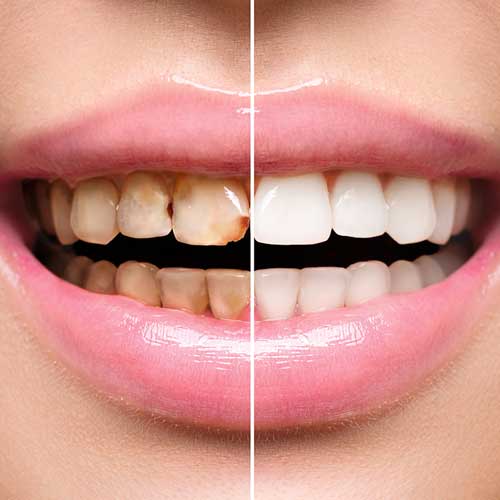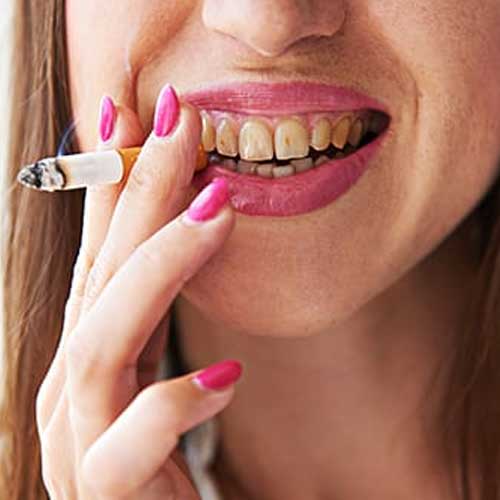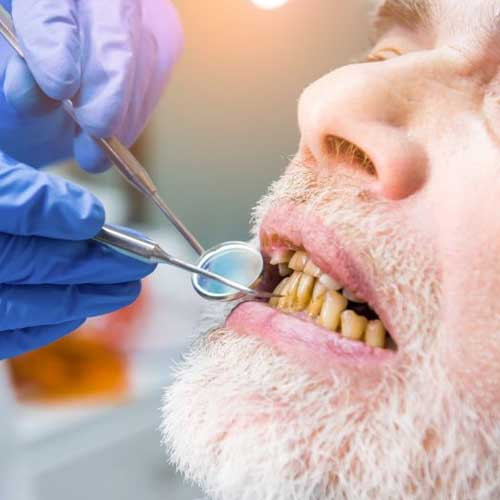
Daily habits like drinking coffee, smoking cigarettes, and consuming sugary or acidic cold drinks can significantly stain and damage your teeth. Tannins in tea and coffee, nicotine and tar from cigarettes, and acids in soft drinks erode enamel, cause discoloration, and increase the risk of cavities and gum disease. These effects go beyond surface stains, often leading to long-term oral health issues such as sensitivity and decay.

Coffee and tea contain a natural compound called tannin, which causes color compounds to stick to your teeth. These stains build up over time and give your teeth a yellow or brown appearance. This is especially common in regular coffee drinkers in Bicton who may not rinse or brush their teeth soon after consumption.

Nicotine and tar in cigarettes are major culprits behind stubborn brown stains. These compounds penetrate the tiny pores in your enamel, making the stains difficult to remove with just brushing. In addition, smoking reduces saliva production, allowing more bacteria and plaque to build up—accelerating discoloration and decay.

Most soft drinks, especially sodas and energy drinks, are highly acidic. The acid content wears away the protective enamel layer of your teeth, exposing the yellowish dentin beneath and making your teeth more susceptible to cavities and stains. Even “diet” or zero-sugar drinks often contain harmful acids like citric acid or phosphoric acid.

Sugary drinks and snacks provide fuel for oral bacteria, which convert sugar into acid. This acid further erodes enamel and leads to decay, especially if brushing is delayed. In dental clinics across Bicton, dentists often treat younger patients with sugar-driven enamel breakdown caused by cold drinks and sweetened coffees.

Tobacco use reduces oxygen in the bloodstream, slowing down healing and increasing plaque formation. This sticky bacterial film contributes not just to bad breath and gum disease, but also makes your teeth appear yellow and dull over time. The combination of plaque and stains makes oral hygiene more difficult and less effective.
Caffeinated drinks like coffee, cola, and energy drinks contribute to dry mouth (xerostomia). A dry mouth means reduced saliva, which is essential for washing away food particles and maintaining a healthy pH level. Without adequate saliva, acids linger longer in the mouth, damaging enamel and encouraging more stains to form.
While many people in Bicton seek help for cosmetic stains, these habits often result in deeper structural damage as well. Eroded enamel can’t regenerate, and over time, this can lead to cracked teeth, painful sensitivity, and a greater risk of tooth decay.
Stains from tobacco and coffee are often too deep to be removed with over-the-counter whitening toothpaste. Dentists in Bicton offer safe, effective treatments like scaling, polishing, and professional teeth whitening to restore the natural brightness of your smile while protecting the enamel.
To minimize the impact of these habits, it’s important to rinse your mouth after drinking coffee or soft drinks, drink through a straw to limit contact with teeth, and brush with fluoride toothpaste. Cutting back on smoking and acidic drinks, or switching to enamel-friendly alternatives, can also make a big difference. Regular visits to a Bicton dental clinic ensure early detection and treatment of any underlying issues.